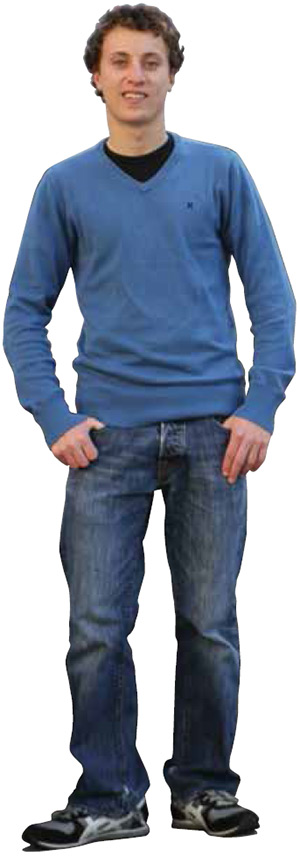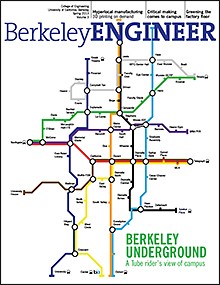Q+A: Oxford-bound
 Daniel Price (Photo by Daniel McGlynn)Graduating senior Daniel A. Price, a double major in bioengineering and electrical engineering and computer sciences with a minor in physics, was selected as one of this year’s Rhodes Scholars. Next fall at Oxford University, Price will pursue research in medical diagnostic equipment. Here he tells us more:
Daniel Price (Photo by Daniel McGlynn)Graduating senior Daniel A. Price, a double major in bioengineering and electrical engineering and computer sciences with a minor in physics, was selected as one of this year’s Rhodes Scholars. Next fall at Oxford University, Price will pursue research in medical diagnostic equipment. Here he tells us more:
When you were growing up, were you always interested in science and math? What drew you to engineering?
I went to a small high school in Grass Valley, California. We didn’t have any math teams or science clubs, but I did enjoy those classes. I always knew I wanted to be an engineer—my father is a civil engineer—but bioengineering wasn’t something that I settled on until I got to college.
What is it that interests you about the field?
I chose bioengineering initially because it seemed the most cutting-edge, and the most likely to erupt in the coming decades. It took until I got here—and started taking classes, and meeting professors and seeing what they were actually doing—that I felt like I had made the right choice, because there is a lot of really important work being done in the field.
You are probably pretty busy with a double major and a minor, but what are you working on now?
I’m working on medical imaging in the Berkeley Imaging Systems Laboratory with Dr. Steve Conolly. We are designing a new modality of imaging that we are calling magnetic particle imaging (MPI), which is similar to magnetic resonance imaging (MRI). We are building a lot of prototypes and testing a lot of theories on how to get better image resolution or better image contrast. I’ve also been leading a side project looking at a different imaging modality that combines magnetics and ultrasound. We call it magnetic acoustical imaging, and that was a proof of concept, just to see if it could be done.
What will you study at Oxford? Do you have any plans beyond that?
At Oxford, I would like to work on biomedical devices or biomedical imaging devices that are being clinically used in hospitals. I’m leaning toward working in industry. I want to be doing engineering, but I also want to serve as a collaborative presence between the business side of the company and the medical professionals. I’m becoming more interested in the larger picture—like getting a device into practice—so I’m considering a business degree. I’ve been accepted to the Harvard Business School. Also, I’ve never been to Europe, and I’m really looking forward to traveling in Ireland, Scotland and on the mainland.

